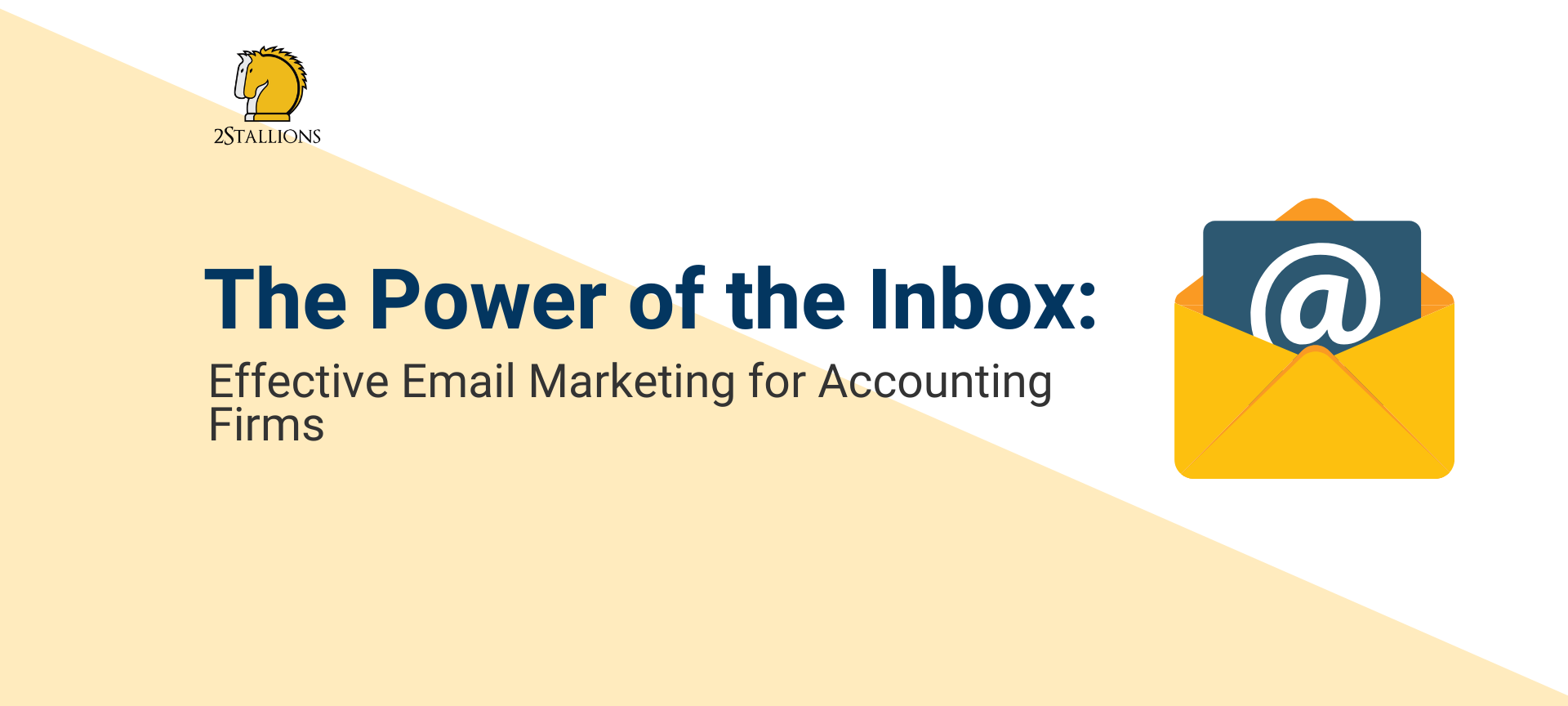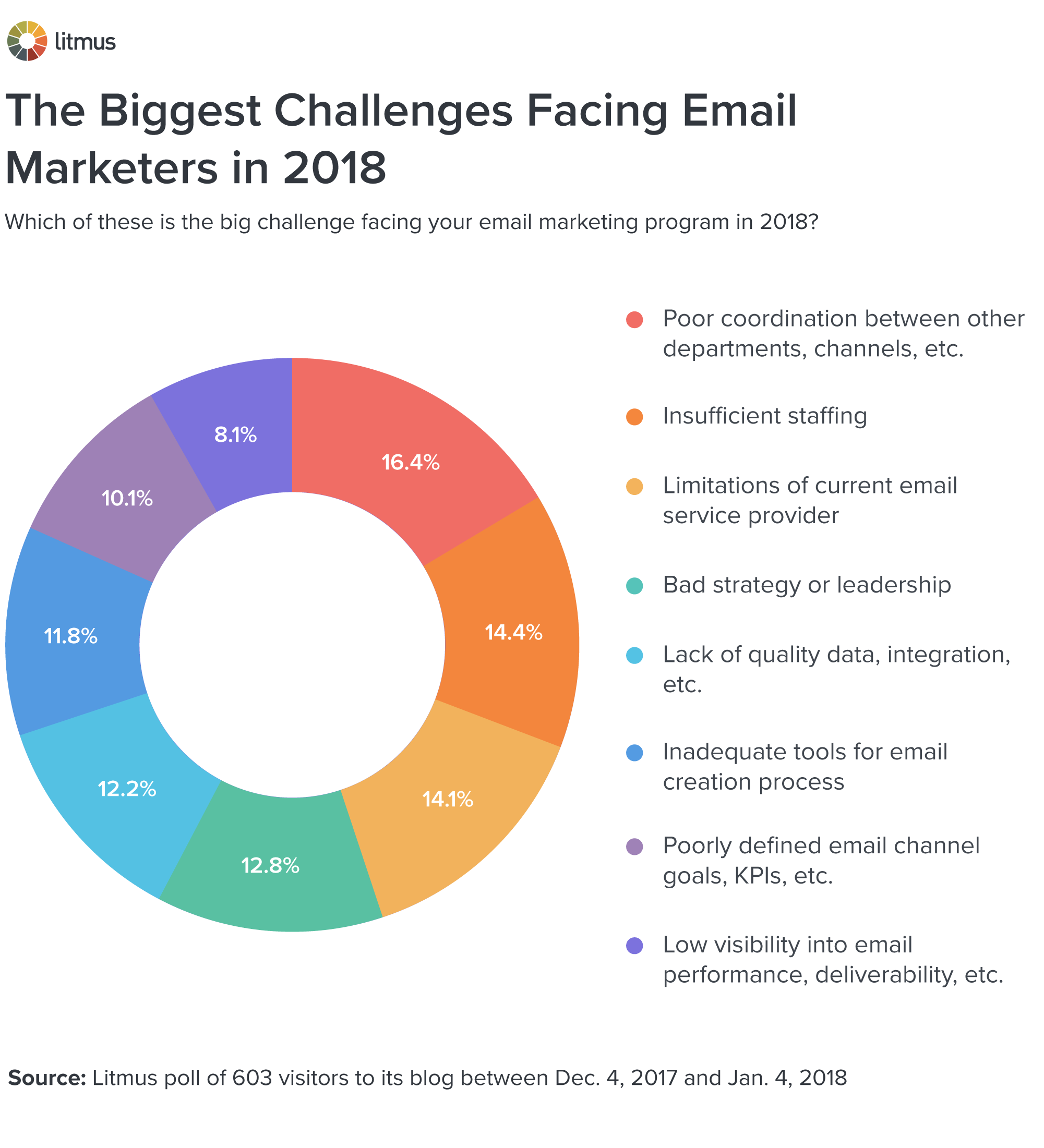SHARE

In today’s digital age, where communication is predominantly done electronically, email marketing has emerged as a powerful tool for businesses to connect with their target audience. For accounting firms, leveraging the power of the inbox can be a game-changer in acquiring and retaining clients. In this article, we will explore the importance of email marketing for accounting firms and discuss strategies to make it effective.

Understanding the Importance of Email Marketing for Accounting Firms
Email marketing plays a crucial role in accounting firms’ client acquisition. You can showcase your expertise, services, and unique value proposition by contacting potential clients directly in their inboxes. This direct communication channel allows you to make a compelling case for why clients should choose your firm over competitors. Furthermore, email marketing is not only about acquiring new clients; it also enhances client retention. By consistently staying in touch with your existing clients through informative and engaging emails, you can strengthen the relationship and remind them of the value you provide. This helps in fostering loyalty and encourages repeat business.
In addition to client acquisition and retention, email marketing can be a powerful tool for thought leadership in the accounting industry. By sharing insightful articles, industry updates, and expert opinions through your email campaigns, you position your firm as a knowledgeable and trustworthy authority in the field. This can help attract clients, potential business partners, and collaborations. Moreover, email marketing allows for targeted and personalised communication with different segments of your client base. By segmenting your email list based on client needs, preferences, and engagement levels, you can tailor your messages to resonate more effectively with each group. This level of personalisation can significantly increase the chances of conversion and client satisfaction.
![How To Write Effective Email Content? 12 Best Practices And Examples [2023] | Mailmunch](https://assets-global.website-files.com/5f3a33a074c2eb9e90f16437/63846790f3f4b216e51fc331_2.png)
Crafting Compelling Email Content for Your Accounting Firm
Regarding email marketing, your content is vital in capturing your audience’s attention. One key element is writing engaging subject lines. A captivating subject line entices recipients to open the email and discover what valuable information or offers you have to share. In the body of your email, focus on creating informative and persuasive content. Address the pain points and challenges your target audience faces and provide solutions. Offer valuable insights, tips, and advice that demonstrate your expertise. Incorporate visual elements such as infographics or charts to enhance the readability and appeal of your content.
Furthermore, it is essential to personalise your emails to make them more relevant to your recipients. Use segmentation to divide your email list based on location, industry, or past interactions with your firm. Tailoring your content to specific segments can increase engagement and conversion rates. Another effective strategy is to include social proof in your emails. Testimonials from satisfied clients or case studies showcasing successful outcomes can help build trust with your audience and encourage them to take the desired action. Additionally, consider including a call-to-action that directs recipients on the next steps, whether visiting your website, scheduling a consultation, or downloading a resource.

Building an Effective Email Marketing Strategy
A well-defined strategy is essential to ensuring the success of your email marketing efforts. One crucial aspect is segmenting your email list. By categorising your subscribers based on their interests, demographic information, or behaviour, you can tailor your email content to resonate with each segment. This personalisation increases the chances of engagement and conversion. Segmentation can be further enhanced by implementing dynamic content within your emails. This advanced technique allows you to show different content to different audience segments within the same email. For example, you can showcase specific products or promotions based on the recipient’s past interactions with your brand, creating a highly personalised experience that drives engagement and boosts conversion rates.
Another aspect to consider is the scheduling and frequency of your emails. Striking the right balance is crucial. Bombarding your subscribers with too many emails can lead to annoyance and unsubscribes, while sending too few may result in your firm being forgotten. Monitor the response rates and adjust your email frequency to find the optimal cadence. Furthermore, paying attention to your emails’ design and layout is essential. A visually appealing and well-structured email captures the recipient’s attention and enhances the user experience. Incorporating responsive design elements ensures that emails are optimally displayed across various devices, from desktop computers to smartphones, providing a seamless viewing experience for all recipients.
Measuring the Success of Your Email Marketing Campaign
Achieving success in email marketing requires tracking key metrics and interpreting the data for continuous improvement. Pay attention to metrics such as open rates, click-through rates, and conversion rates. These metrics provide insights into the effectiveness of your email content, subject lines, and overall campaign performance. Based on the data analysis, make necessary adjustments to refine your email marketing strategy. Experiment with different subject lines, email formats, and calls-to-action to see what resonates best with your audience. Testing and iterating based on the results will help optimise your campaign’s success.
Furthermore, segmenting your email list to target specific groups of subscribers with tailored content is essential. By understanding the preferences and behaviours of different segments, you can personalise your emails for better engagement and conversion rates. Utilising segmentation strategies can lead to more targeted campaigns and improved overall performance. Another crucial aspect to consider is the timing of your email sends. Monitoring when your subscribers are most active and responsive can significantly impact the success of your campaigns. You can increase open rates and drive higher click-through rates by scheduling your emails to reach recipients at the most opportune moments. Timing ensures your target audience sees and acts upon your messages.

Overcoming Common Challenges in Email Marketing for Accounting Firms
Low open rates and click-through rates are common challenges faced by accounting firms in their email marketing efforts. To combat this, focus on improving your subject lines and email content. Experiment with personalisation techniques, intriguing questions, or time-limited offers to grab the reader’s attention and entice them to take action. One crucial factor is ensuring your emails aren’t in the spam folder. To avoid being flagged as spam, follow email marketing best practices such as obtaining recipient permission, avoiding excessive promotional language, and providing valuable content. Also, regularly monitor your email deliverability and take corrective actions if needed.
When delving into email marketing for accounting firms, it’s essential to understand the unique challenges and opportunities this industry presents. Accounting firms often face strict data protection and confidentiality regulations, unlike other sectors. Therefore, crafting email content that balances information and compliance with industry standards is key. Moreover, accounting firms can leverage email marketing to acquire and nurture existing client relationships. By segmenting your email lists based on client needs and preferences, you can tailor your content to provide relevant insights, updates on industry trends, and personalised advice. This approach not only increases engagement but also fosters long-term loyalty among clients.
Frequently Asked Questions About Effective Email Marketing for Accounting Firms
What Makes Email Marketing Effective for Accounting Firms?
Email marketing is particularly effective for accounting firms because it provides personalised, valuable content directly to clients, fosters relationships, demonstrates expertise and nurtures leads through targeted campaigns.
How Can an Accounting Firm Create a Successful Email Marketing Strategy?
A successful email marketing strategy involves segmenting your audience for personalised content, crafting engaging and informative emails, incorporating clear calls to action, and utilising automation tools for timely and consistent communication.
What Are the Critical Components of an Engaging Email for Accounting Clients?
Key components include a compelling subject line, relevant and concise content, a clear call to action, and personalised elements that address the specific needs and interests of the recipient, all while maintaining a professional tone.
How Can Accounting Firms Measure the Success of Their Email Marketing Campaigns?
Success can be measured through metrics such as open rates, click-through rates, conversion rates, email list growth, and client feedback. These indicators help firms adjust their strategies for improved engagement and effectiveness.









